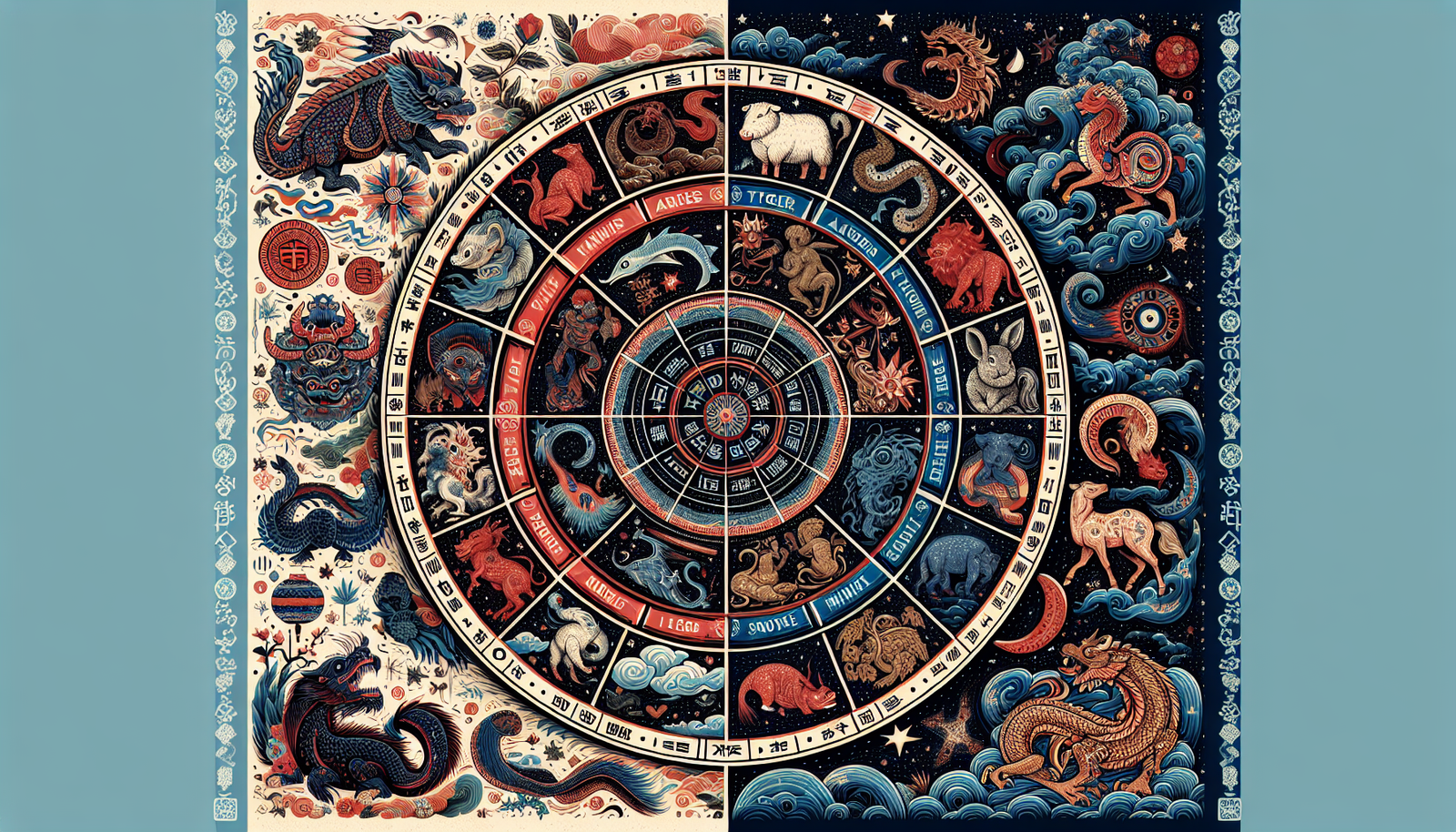Understanding the Difference Between Eastern Zodiac Sign and Western Zodiac Sign
Astrology has fascinated humans for centuries, and two prominent systems, the Eastern Zodiac (often referred to as the Chinese Zodiac) and the Western Zodiac, offer unique insights into personality and destiny. While both systems serve as guides to understand ourselves and the universe better, they are fundamentally different in their approach, symbolism, and interpretation. In this article, we will explore the key differences between the Eastern and Western Zodiac signs, making it easier for you to appreciate the richness of each system.
What is the Eastern Zodiac?
The Eastern Zodiac, or Chinese Zodiac, is based on a twelve-year cycle, with each year associated with a specific animal sign. These signs are:
- Rat
- Ox
- Tiger
- Rabbit
- Dragon
- Snake
- Horse
- Goat
- Monkey
- Rooster
- Dog
- Pig
Each animal sign has its own traits and energies that influence individuals born under them. The Eastern Zodiac also incorporates the five elements: Wood, Fire, Earth, Metal, and Water, which further modify the characteristics associated with each sign.
What is the Western Zodiac?
The Western Zodiac is based primarily on the position of the Sun at the time of a person’s birth. It uses a twelve-sign system connected to the twelve months of the year and the twelve astrological houses. The signs are:
- Aries
- Taurus
- Gemini
- Cancer
- Leo
- Virgo
- Libra
- Scorpio
- Sagittarius
- Capricorn
- Aquarius
- Pisces
In addition, the Western Zodiac embraces the influence of planetary bodies, particularly those of the Sun, Moon, and other planets, to create a comprehensive astrological profile for each individual.
Key Differences Between Eastern and Western Zodiac Signs
1. Calculation Based on Timeframe
The Eastern Zodiac is anchored in a lunar calendar, which aligns with the cycles of the moon. Each year begins with the Spring Festival, also known as the Chinese New Year, which varies between late January and February.
Conversely, the Western Zodiac utilizes a solar calendar, where the sign is determined by the Sun’s position within the twelve signs of the zodiac, typically associated with specific date ranges within the year.
2. Periodicity of Signs
Eastern Zodiac signs operate on a twelve-year cycle, where each year is linked to an animal. Meanwhile, the Western Zodiac runs on a twelve-month cycle, with a new sign for each month.
3. Influencing Elements
The Eastern Zodiac incorporates five elements that rotate every two years in association with the animal signs:
- Wood
- Fire
- Earth
- Metal
- Water
This mixture introduces a blend of attributes each year, making it rather unique. In contrast, the Western Zodiac emphasizes planets that influence individual characteristics, offering a much more extensive analysis based on multiple astrological factors.
4. Concept of Destiny and Character
The Eastern Zodiac suggests that individuals are defined by their sign’s intrinsic traits, believing that one’s destiny is largely influenced by the sign governing their birth year. For instance, a Rat personality might be considered clever and resourceful.
In the Western Zodiac, while traits are still associated with signs, there is a focus on the entire birth chart, including the Moon sign and Rising sign. These factors contribute to a more nuanced understanding of one’s character.
5. Cultural Significance
The Eastern Zodiac has deep cultural ties to Chinese traditions, with elements of mythology and philosophy intricately woven into its interpretations. Several festivals and customs are celebrated along with the cycle of animal signs, emphasizing community and family connections.
On the flip side, the Western Zodiac has its roots in ancient Greek astrology, which emphasizes individualism and character traits. Astrology often features in Western pop culture through horoscopes, influencing personal behaviors and choices.
6. Predictive Approaches
The Eastern Zodiac often provides predictions based on the year’s animal, guiding how one should approach life circumstances, while the auspiciousness of different elements may indicate suitable activities or career choices.
Western astrology focuses on daily, weekly, or monthly horoscopes that offer insights based on planetary movements and aspects, focusing on immediate circumstances rather than a yearly cycle.
Common Misconceptions
Despite the rich traditions and insights from both systems, there are common misunderstandings:
- Myth: People often think astrology is a strict predictor of fate.
- Truth: Astrology offers insights and guidance, but our choices shape our path.
- Myth: All traits associated with a sign are rigidly fixed.
- Truth: Astrology suggests tendencies, and personal experiences play a role in shaping our nature.
How to Use Both Zodiac Signs to Your Advantage
Understanding both the Eastern and Western Zodiac can provide a comprehensive view of your personality and potential. Here’s how you can benefit:
- Personal Growth: Use insights from both systems to explore personal strengths and weaknesses.
- Compatibility: When exploring relationships, consider both Eastern and Western compatibility.
- Guidance: Use astrological readings to make informed decisions in various areas of your life.
Conclusion
Both the Eastern and Western Zodiac signs offer unique perspectives on character, behavior, and life paths. While they differ in their calculations, symbols, and interpretations, understanding both systems can create a richer landscape of self-awareness and self-improvement.
By exploring the wisdom embedded in each Zodiac, you open yourself up to more profound insights and guidance, understanding that astrology is not just about predicting the future but about understanding the present and making the most out of your life journey.
Embrace the beauty of both traditions as you navigate through life, utilizing the insights they provide to cultivate a more fulfilled and balanced existence.

